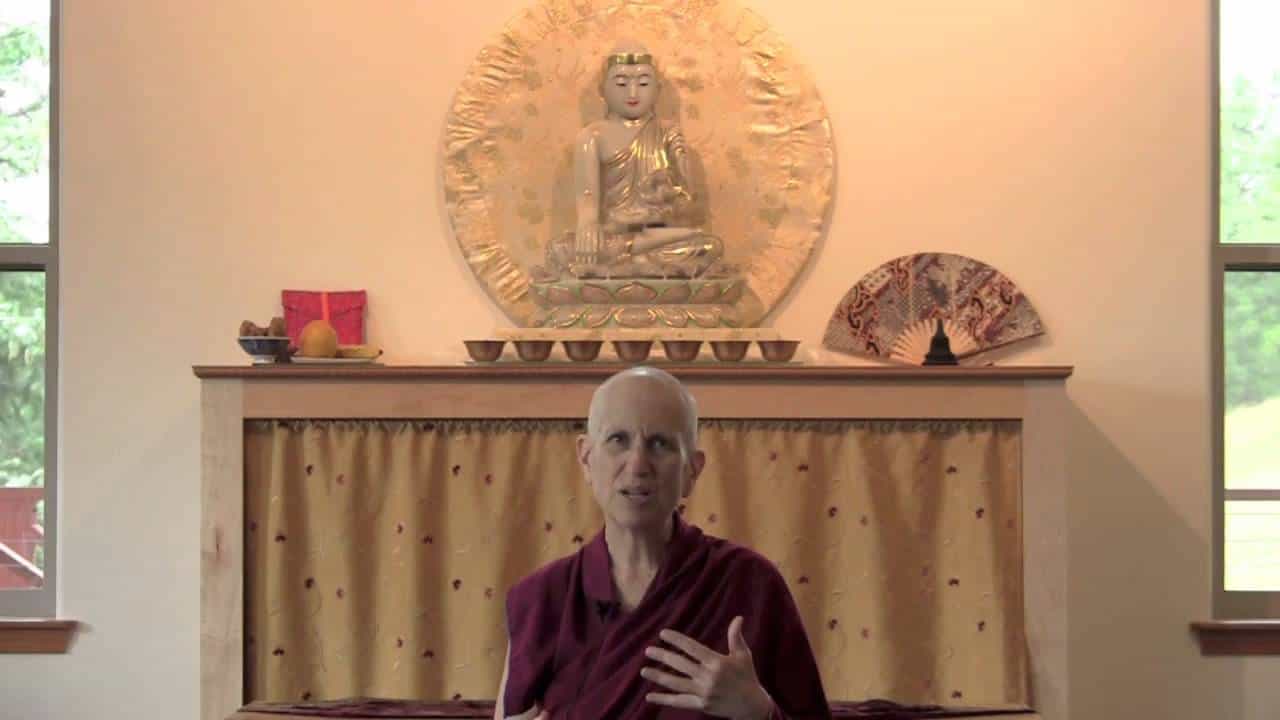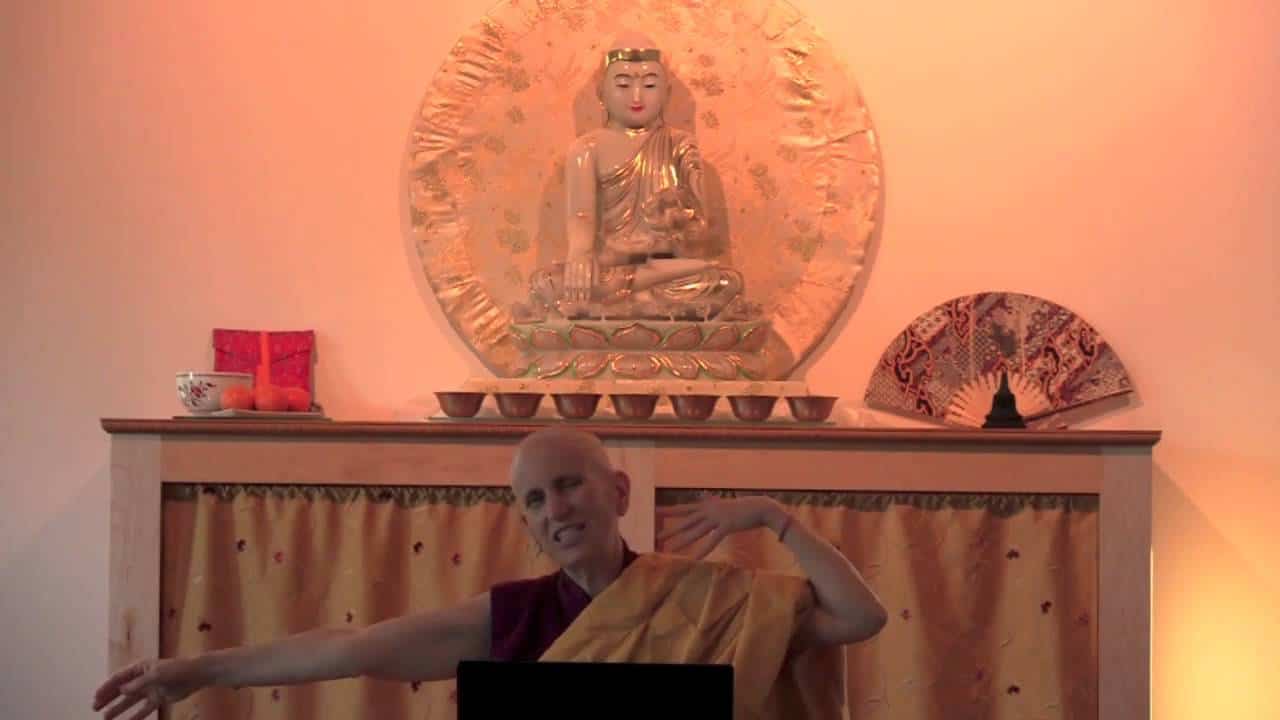Verse 37: The one who is most ridiculed
Part of a series of talks on Gems of Wisdom, a poem by the Seventh Dalai Lama.
- Some people lose their practice when there is a life change
- We should strive to develop a stable and reliable practice that weathers life’s ups and downs
Gems of Wisdom: Verse 37 (download)
Who is the most ridiculed by the people of the world?
Those who, when they lose their worldly position, also lose their spiritual perspective.
It could be politicians, CEOs, us, because we all have, in our own little realm, our own worldly position. And if we lose it, it brings this shake-up in our identity. Like if we’re used to having a certain status in society, or a certain job, or people treating us in a certain way, and then we lose that. Or, people don’t know who we are and so they don’t treat us as we expect to be treated, then we lose our spiritual practice, and our spiritual perspective.
This could be losing status. It could be losing money. It could be just changing our role in one way or another. And I must say, I see this all the time in terms of people coming to Dharma Centers.
Let’s say somebody is coming to a Center. If they get a job then they stop coming. If they lose their job then they also stop coming. If they get married they stop coming. And if they get divorced they also stop coming. If they have kids they stop coming. When their kids move out then they also stop coming. And so on and so forth. It’s like whenever there is some kind of change people often just go “I don’t know who I am anymore” and they really lose their spiritual perspective and their spiritual interest. And for me, the time when those things change is the exact time when your practice is going to help you the most. And that should be the time when you go to the Dharma Center the most, or when you really increase your meditation practice. Because that’s the time you really need to work with your mind and protect your mind. But it’s so funny to watch people. Whenever there’s any kind of change in their life one of the things that goes is their spiritual practice. So it kind of makes you wonder sometimes.
That is somebody who is the most ridiculed.
Ridiculed? I don’t know. Do other people ridicule? Most people agree. I’m not sure who does that. Maybe in Tibet. That’s very true.
[In response to audience] Anybody who is banking on their looks for attention, or their athletic ability, or their health or their whatever it is….. Whenever there’s a change in all of that, yes, for sure, people can really…. They feel so lost. And that’s the time, really, when the Dharma can help you the most.
[In response to audience] Well they get ridiculed, but I was taking this verse to mean they get ridiculed for losing their spiritual perspective. But it’s true that often people—anybody who falls from their position—often people in society do ridicule them.
[In response to audience] We love that. We love to build people up and watch them go kerplunk. It’s quite amazing.Especially in this country. We love to build people up, make them into incredible idols, and then when they fall down we all love talking about it. It’s like, what in the world do we get out of it? And then if they get redeemed afterwards, you know? They find God or something. Then everybody *really* likes them. But that’s if they were rich and famous and good looking beforehand. Anybody else who gets redeemed they don’t pay any attention to. They’re not worthwhile. Kind of crazy, yes?
[In response to audience] So you’re seeing “ridicule” in yet a third way here. Somebody who has a change in their life then they change by losing their practice and people see them as unreliable or unstable and ridicule them for that.
But in any case, the point is—at least, my point is—that we should maintain a stable practice and stable interest in the Dharma no matter what our external situation is. No matter whether things are going well or things aren’t going well, whether we’re healthy, whether we’re sick, or rich, or poor, famous or not, up and down. Because all of these things in samsara change all the time. So, no matter what’s going on like that, to have a stable practice that we really rely on and take as our refuge.
[In response to audience] So when somebody’s spiritual practice isn’t going well. I would need more information from the person about what wasn’t going well. What are they doing? What do they consider not going well? And I say this because it depends what they’re meditating on, how they were instructed, how they’re putting those instructions into practice, how they’re working with their day to day life. Also because sometimes people have very high expectations in practice, and then when nothing seems to be happening they think their practice isn’t going well. So it might involve helping them to have more accurate expectations. So on that kind of thing I would really need specific information from the person to be able to respond in a fair way.
Venerable Thubten Chodron
Venerable Chodron emphasizes the practical application of Buddha’s teachings in our daily lives and is especially skilled at explaining them in ways easily understood and practiced by Westerners. She is well known for her warm, humorous, and lucid teachings. She was ordained as a Buddhist nun in 1977 by Kyabje Ling Rinpoche in Dharamsala, India, and in 1986 she received bhikshuni (full) ordination in Taiwan. Read her full bio.


